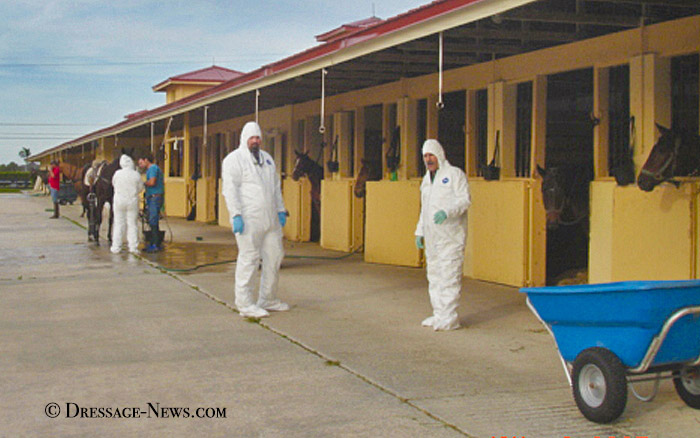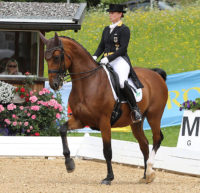Europe’s Equine Herpes Virus Outbreak Spreads, World Cup Concerns for 2nd Year
5 years ago StraightArrow Comments Off on Europe’s Equine Herpes Virus Outbreak Spreads, World Cup Concerns for 2nd Year

Mar. 2, 2021
By KENNETH J. BRADDICK
Plans to stage the World Cup Finals of jumping and dressage at Gothenburg, Sweden the end of March were thrown into doubt Tuesday by the cancellation of equestrian events in 10 European nations for a month in response to the spread of an aggressive form of equine herpes virus. Since imposition of the horse show ban, new cases have been reported in other countries, including Sweden.
Throughout the month of February, as many as 600 horses left a jumping competition at Valencia, Spain where the virus was first discovered, according to news reports. Two horses that flew to an event in Doha, Qatar were reported infected and a Swedish equestrian outlet quoted a state veterinarian as saying that infections have been detected in Sweden.
The month-long cancellation ordered by the International Equestrian Federation (FEI) means that the sole remaining Western European League World Cup qualifier in ‘s-Hertogenbosch, the Dutch Masters, that was to start in 10 days now cannot be held as the Netherlands is one of 10 nations where shows are canceled.
The Final is scheduled to be held in Gothenburg, Sweden beginning Mar. 30, two days after the cancellation period ends. Germany, the Netherlands and France were among the 10 countries where equestrian events have been closed but Germany, the Netherlands and France are.
Organizers of the World Cup Finals have been planning the event with likely no spectators but with an infusion of funding from the FEI that occurred before the EHV-1 outbreak.
Only two dressage qualifiers of the 12 on the Western European calendar were held as the rest were canceled due to coronavirus.
Central Europe managed a near complete lineup, but the Pacific league of Australia and New Zealand has not held any events.
North America has completed six dressage qualifying events with a seventh and deciding competition scheduled for the Global Dressage Festival in Wellington, Florida this week.
Olivia LaGoy-Weltz of Haymarket, Virginia on Lonoir, Charlotte Jorst of Reno, Nevada on Kastel’s Nintendo and Canada’s Brittany Fraser-Beaulieu on All In are entered in this week’s qualifier, all with a chance to clinch the two available starting spots in the Final.
At least 250 horses for dressage, jumping and polo from Europe are currently in Wellington for the winter-long circuits, reported Tim Dutta, whose Dutta Corp. operates the largest international airlift of sport horses into the United States.
Horses from North America–both dressage and jumping and those from European riders who have been competing at Wellington, for example, but may be invited to the World Cup Final–would would be flown into continental Europe then go by road to Gothenburg.
This was to be the 35th anniversary of the dressage World Cup Final,. The event was canceled for Las Vegas in 2020 for the first time because of Covid-19.
Horse shows in much of Europe, parts of the United States and elsewhere were hit hard by coronavirus restrictions before the impact of the EHV-1 virus.
Following the international cancellations, Germany, Spain and other countries also closed hundreds of national competitions throughout the month of March.
Both international and national shows have been held throughout Florida for several months, almost weekly at the Palm Beach International Equestrian Center since the end of May. However, events at venues in some states, including in California and at the Kentucky Horse Park in Lexington, have been called off.
Most of the hundreds of horses from Europe competing at Wellington’s Global Dressage and Winter Equestrian Festivals are expected to delay departures as long as possible as equestrian events in much of the continental Europe have been canceled.
All horses coming into the United States, whether for competitions including in Florida, the premier 5* event in Kentucky in mid-April, sales horses and for any other purpose undergo mandatory quarantine and testing by the U.S. Department of Agriculture.
EHV-1 is contagious and outbreaks of the virus have occurred occasionally throughout the world including North America. Veterinarians report that strict quarantine of horses, footwear disinfected and clothing worn near an infected horse changed, as well as treatment has shown to be effective in curtailing the spread.

